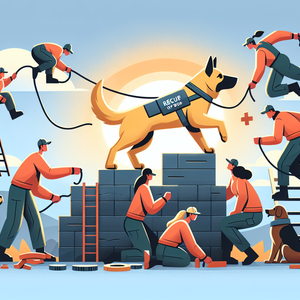Art, Oil, and Legacy: The Getty Family’s Cultural Impact

J. Paul Getty, the family patriarch, was not just an astute businessman; he was a visionary who recognized the transformative power of oil. Born in 1892 in Minneapolis, Getty ventured into the oil industry during the early 20th century, capitalizing on the burgeoning demand for petroleum. His early investments, particularly in the oil-rich regions of Texas and Oklahoma, laid the groundwork for the Getty family's astounding wealth. By the 1960s, he had amassed a fortune that ranked him among the richest individuals in the world. However, Getty's interests extended beyond oil; he was an avid art collector, drawn to the beauty and history of the pieces he acquired. This dual passion for business and art would shape his family's legacy. The wealth generated from his oil ventures allowed him to travel extensively, visiting museums and galleries around the globe, where he began to cultivate a deep appreciation for art. This appreciation translated into a lifelong mission to collect, preserve, and share art with the public.
The Birth of the Getty Museum
In 1974, the Getty Museum was established in Los Angeles, a testament to the family's dedication to art and culture. The museum was designed to showcase Getty's extensive art collection, which included works from ancient Greece to the Renaissance and beyond. The Getty Villa, modeled after a Roman country house, houses antiquities that reflect Getty's deep appreciation for classical art. The museum's design, influenced by Getty's own aesthetic sensibilities, serves not only as a backdrop for art but also as a destination for cultural engagement. Through the establishment of the museum, the Getty family not only sought to preserve art but also to make it accessible to the public. The museum's admission is free, a testament to their commitment to democratizing art appreciation. This commitment to sharing art with the community has had a lasting impact on cultural engagement in California and beyond. The Getty Museum has become a vital cultural institution, attracting millions of visitors each year and serving as a hub for education, research, and public discourse on art.
Cultural Reflection Through Art Collection
The Getty family's art collection serves as a mirror reflecting their financial ascendance and cultural values. The pieces they acquired are not merely artifacts; they tell stories of history, innovation, and human experience. For instance, their collection of European paintings, including works by Van Gogh, Rembrandt, and Titian, showcases the family’s taste and aesthetic sensibilities. Each piece represents not just an investment but a connection to the rich historical narratives that surround them. However, the collection also raises questions about the intersection of wealth and culture: how does immense wealth shape the narrative of art? The Gettys have navigated this complex landscape by using their fortune to promote cultural appreciation rather than merely hoarding treasures. The family's approach to collecting was not just about ownership but about stewardship—ensuring that these masterpieces would be preserved and made available for future generations to appreciate and learn from.
Philanthropy and Cultural Influence
The Getty family’s influence extends beyond their museum. Their philanthropic efforts have reshaped cultural landscapes across various sectors, including education, conservation, and the arts. The Getty Foundation, established to promote the visual arts, has funded countless initiatives aimed at preserving art and supporting artists. Through grants and partnerships, the Getty family has also played a pivotal role in revitalizing cultural institutions and fostering new talent. For instance, the Getty Foundation has supported numerous programs in art education, helping to cultivate an appreciation for the arts among young people. Their funding of conservation efforts ensures that artworks and historic sites are preserved for future generations to experience. By investing in art education and conservation projects, the Gettys have contributed to a broader understanding of art’s role in society. Their commitment to philanthropy reflects a desire to give back to the community, shifting the narrative from mere wealth accumulation to active cultural stewardship.
The Getty family’s journey is a remarkable blend of oil wealth and artistic passion, culminating in a legacy that extends far beyond financial success. Through the establishment of the Getty Museum and their extensive art collection, they have created a cultural institution that enriches public life and promotes appreciation for art. Their philanthropic efforts further underscore the impact of their fortune on society, demonstrating how wealth can be harnessed to foster cultural dialogue and understanding. The Getty family's story is not just about the rise of a family fortune; it is a compelling narrative of how art and wealth can intertwine to create a lasting legacy that continues to inspire future generations. The Gettys exemplify how individuals can use their resources to cultivate cultural enrichment, leaving an indelible mark on the world of art and beyond.
Museum Curator
The Getty Museum, The Metropolitan Museum of Art
Core Responsibilities
Develop and manage exhibitions that align with the museum’s mission, focusing on art preservation and public engagement.
Conduct research on collections, including provenance and historical context of artworks, to enhance educational programming.
Collaborate with artists, scholars, and other institutions to create innovative educational initiatives and public programs.
Required Skills
Strong background in art history, with specialized knowledge in specific periods or styles.
Excellent organizational and communication skills to effectively manage projects and engage with diverse audiences.
Experience with collection management software and archival research methods.
Art Conservation Specialist
Getty Conservation Institute
Core Responsibilities
Assess and analyze artworks for preservation needs, utilizing various conservation techniques and materials.
Develop treatment proposals for artworks, balancing aesthetic integrity with preservation ethics.
Collaborate with curators and educators to ensure that conservation efforts align with exhibition goals and public access.
Required Skills
Strong knowledge of chemistry and materials science as they relate to art preservation.
Practical experience in conservation techniques, such as cleaning, repairing, and stabilizing artworks.
Attention to detail and the ability to document processes and results meticulously.
Arts Education Coordinator
Getty Museum, local art councils
Core Responsibilities
Design and implement educational programs and workshops that engage diverse audiences with the museum’s collections.
Collaborate with schools and community organizations to promote art education and outreach initiatives.
Evaluate program effectiveness through feedback and assessment tools to enhance future offerings.
Required Skills
Strong understanding of pedagogy and experience in curriculum development for art education.
Excellent communication and interpersonal skills to foster relationships with educators and community members.
Ability to work collaboratively with artists, educators, and museum staff to create engaging content.
Cultural Philanthropy Manager
Getty Foundation, National Endowment for the Arts
Core Responsibilities
Develop and manage grant programs that support artists, cultural institutions, and art education initiatives.
Foster relationships with potential donors and stakeholders to secure funding for cultural projects and initiatives.
Monitor and evaluate funded programs to assess impact and ensure alignment with the organization’s mission.
Required Skills
Strong background in nonprofit management, fundraising, and grant writing.
Excellent networking and communication skills to build partnerships within the arts community.
Understanding of the cultural landscape and trends in arts funding and philanthropy.
Art Auction Specialist
Christie’s, Sotheby’s
Core Responsibilities
Evaluate and appraise artworks for auction, providing insights on market trends and potential sales strategies.
Work closely with consignors to prepare artworks for auction, including cataloging, photography, and marketing.
Conduct live and online auctions, engaging with bidders and providing expert commentary on pieces.
Required Skills
Extensive knowledge of art markets, trends, and valuation techniques.
Strong negotiation and sales skills, with the ability to communicate effectively with diverse clientele.
Experience with auction platforms and technology, as well as a background in art history.


